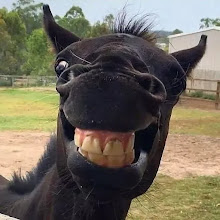The pub has changed, especially in the cities.
Some might say everything changes, but the pub can be a good indicator to see
how our relationship with each other in society has altered. In the last few
years there has been complete change in the place of the pub, in its meaning
and its function. It has nothing to do with superficial changes brought about
by fashion, such as furniture design, shapes of glasses, types of drinks and
the clothes people wear. A seventeen year old girl or boy on their way to see
David Bowie in 1972, wearing crushed velvet flares, could have stopped off in a
pub for a pint of lager and lime and were standing in a place of history where
they were taking their place among others, some of whom would have fought in
the First World War, many in the Second World War. They would converse, maybe
not sharing the same immediate interests, but all the same, there would be
conversations involving beliefs and sharing one's values and gaining insights
into the lives of other people. Yet, the pub had brought them together, and had
been doing so for a few hundred years, and those seventeen year olds could well
have taken their own children in that same pub for a drink many years later.
This inter-mixing of generations and different types had a democracy all of its
own, a place away from the confines of ordered society. It was a place where
people met their future partners, although sometimes a place of violence and
criminal trading, but also a place for celebration, merriment and to remember a
departed friend. It was a space to be alone, to take the newspaper or a book
and sit by oneself; it was a place of solace. Landlords and landladies had
their own distinctive character and this situation had existed for a few
hundred years, but that has now changed.
The corporation has entered the high street and
also inside the lives of people. The pub is now mostly food orientated, theme
based and designed to bring in consumers, get them to spend and get them out
the door to get other consumers in. A common sight now is to see a person
entering a pub, taking out their ear pieces, check about themselves, see a
group of people they had arranged to meet, join them, have a burger and beer
that is out of the price range of many, and flick a card or phone at a device
that will suck money from that person's bank account. The props and prices are
aimed at a qualified class, the man with the evening paper standing alone at
the bar has vanished, after a few hundred years, he has gone and with it the
mixing and acceptance and learning about other people. The Corporate Self is
the name of the pub near me, it's selective and it isn't democratic as it
symbolises a society with marked divisions.
